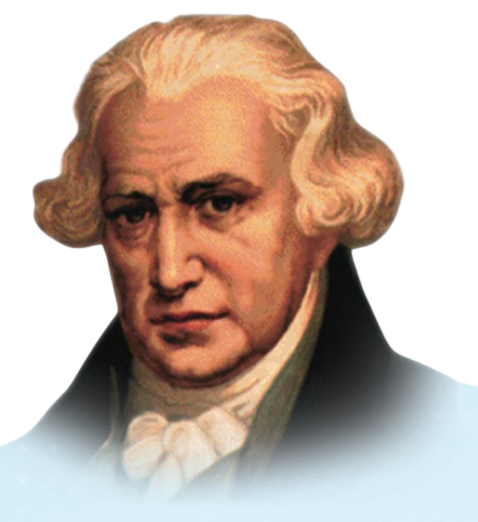ABOUT MECHANICAL ENGINEERING DEPARTMENT

James Watt, the famous Scot and great scientist, who vastly improved the imperfect steam engine of his day, is also referred to as the Father of Mechanical Engineering and Father of the Steam Age. Mechanical Engineering begins when the Industrial Revolution begins. Because as human beings began to depend and look to machines to increase the work output and make production more efficient and reliable, the world of mechanical engineering opened up to incredible possibilities. The invention of the steam engine was monumental for the industrial revolution. James Watt is often coined the father of mechanical engineering because it was that particular invention that gave way tomany more important developments of the industrial revolution and beyond.
In 2009, the Department of Mechanical Engineering was founded. In the academic year 2009-2010, the department offers a BTech in mechanical engineering, and in the academic year 2014-2015, it offers an MTech in CAD/CAM. Our vision is to become a recognized center of excellence in mechanical engineering where research, teaching, and learning work together to provide scientific research and technical education for the advancement of humankind. Our goal is to produce professional mechanical engineers capable of functioning on a worldwide scale. To do this, we plan to establish a research center that conducts modern research in collaboration with industries. The goal of the projects and practical training is to encourage students to think like entrepreneurs and to provide some of them with the opportunity to start their own enterprises.
Members of the department's faculty are highly qualified and experienced professionals who are actively involved in research and regularly publish their findings in national and international journals. The department commonly organizes technical workshops to introduce professionals to new topics. Modern labs, a department library, and classrooms that facilitate e-learning are all part of the department's amenities. The department provides other departments with accessibility to its well-equipped, conveniently placed workshop. To improve the students' learning experiences, industry visits and guest lectures are organized on a regular basis. As we strive for our student's overall success, we encourage them to take part in all extracurricular activities.
VISION
To be an emerging center of mechanical engineering excellence where teaching, research, and learning are integrated to produce technical education and scientific research that enhances society.
MISSION
M1: To serve society through innovation and excellence in teaching and research
M2: To assist the students in becoming professionally trained and socially responsible mechanical engineers who respect ethical principles.
M3: Providing modern resources for students to learn in order to prepare them for working life and encourage further research and study.
PEOs for Mechanical Engineering
1.To impart to students the abilities required for lucrative careers in machine design, thermal systems, manufacturing processes, and related fields in Indian and multinational companies.
2. To provide students to a broad spectrum of innovative mechanical engineering principles in order to more effectively prepare them for the workforce.
3. To support students in acquiring the entrepreneurial spirit, lifelong learning skills, and moral principles necessary for a fulfilling career.
PSOs for Mechanical Engineering
PSO 1: Ability to research, evaluate, create, and improve manufacturing and thermal technologies using the principles and methodologies of mechanical engineering.
PSO 2: Creating an approach that embraces global challenges and uses knowledge of mechanical engineering to solve design, production, and multidisciplinary field-related difficulties.
PSO 3: Capable of working independently in industrial or research scenarioscapable to apply computational approaches and tools to conduct experiments and simulate real-life problems in engineering.
PROGRAM OUTCOMES (POs): Common to all branches of Engineering
1 Engineering Knowledge: Apply the knowledge of basic sciences and engineering fundamentals to solve engineering problems.
2 Problem Analysis: Analyse the complex engineering problems and give solutions related to chemical & allied industries.
3 Design/ development of solutions: Identify the chemical engineering problems, design and formulate solutions to solve both industrial & social related problems.
4 Conduct investigations of complex problems: Design & conduct experiments, analyse and interpret the resulting data to solve Chemical Engineering problems.
5 Modern tool usage: Apply appropriate techniques, resources and modern engineering & IT tools for the design, modelling, simulation and analysis studies.
6 The engineer and society: Assess societal, health, safety, legal and cultural issues and their consequent responsibilities relevant to professional engineering practice.
7 Environment and sustainability: Understand the relationship between society, environment and work towards sustainable development.
8 Ethics: Understand their professional and ethical responsibility and enhance their commitment towards best engineering practices.
9 Individual and team work: Function effectively as a member or a leader in diverse teams, and be competent to carry out multidisciplinary tasks.
10 Communication: Communicate effectively in both verbal & non-verbal and able to comprehend & write effective reports.
11 Project management and finance: Understand the engineering and management principles to manage the multidisciplinary projects in whatsoever position they are employed.
12 Life-long learning: Recognize the need of self-education and life-long learning process in order to keep abreast with the ongoing developments in the field of engineering.
